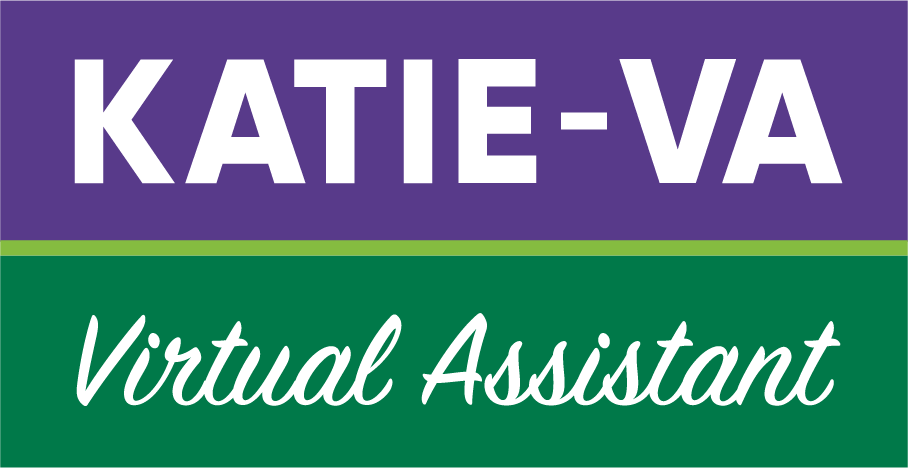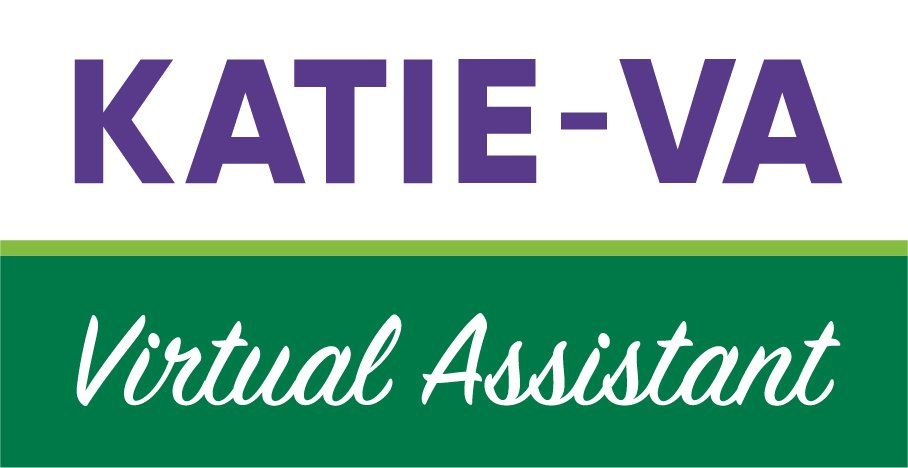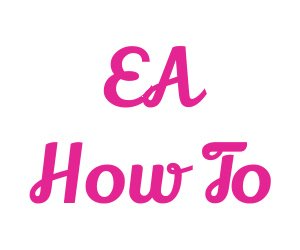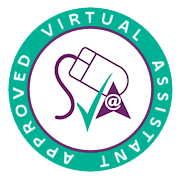Making the Leap: Employed Professional to Self-Employed Virtual Assistant
More and more professionals are seeking alternatives to the traditional 9-to-5 employment model. If you’re looking to take control of your career and work from home, transitioning to a self-employment Virtual Assistant is a promising, viable and rewarding option.
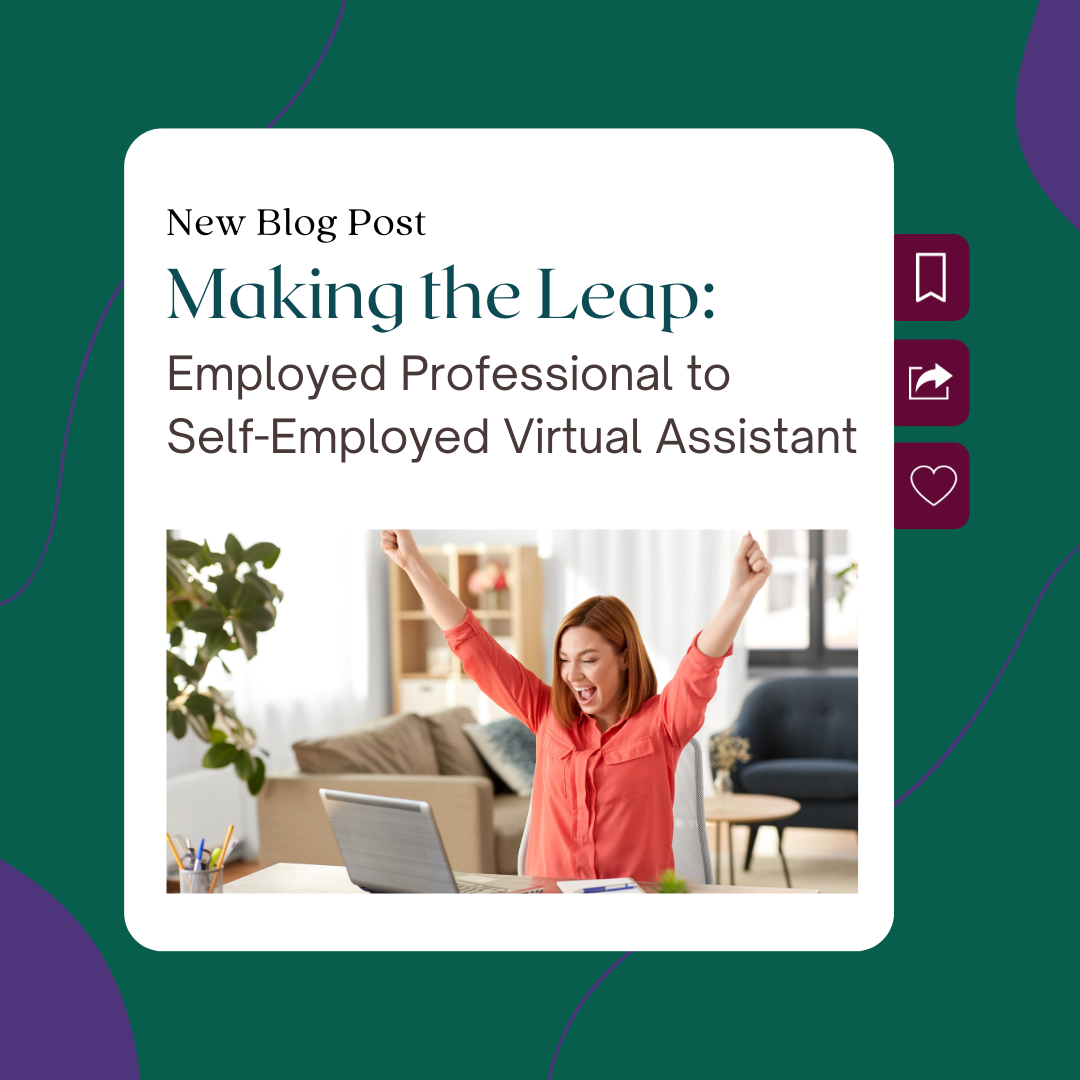
If you want to make the leap successfully, there’s some essential preparations to take care of, along with really thinking about the pros and cons of self-employment, and being sure that the signs are all there that it’s the right time to make that transition.
Preparing for the Leap
Before taking the plunge into self-employment as a VA, there are several key steps and considerations to keep in mind:
Skills Assessment: Evaluate your administrative and technical skills. VAs often provide a wide range of services, from email management to social media marketing. Identify your strengths and areas for improvement.
- Market Research: Investigate the demand for VA services. Consider your niche, target clients, and their needs. Who are your potential clients, and what services can you offer to meet their requirements?
- Legal and Financial Planning: Register your business, obtain the necessary insurance, and set up a separate business bank account. Consult a legal or financial advisor to ensure you're on the right track.
- Pricing Strategy: Determine your pricing structure. Research industry rates and factor in your skills and experience. Remember that as a self-employed VA, you'll also need to account for taxes, health and other expenses.
- Client Contracts: Create clear and concise client contracts outlining your services, rates, payment terms, and expectations. This document is crucial for protecting both you and your clients.
- Home Office Setup: Invest in a functional and comfortable home office. This space should be free from distractions and equipped with the necessary tools and technology to run your VA business efficiently.
Pros and Cons of Self-Employment
While self-employment as a Virtual Assistant offers many benefits, it also comes with its fair share of challenges. Let's weigh the pros and cons:
Pros:
- Flexibility: You have the freedom to set your own working hours and choose your clients and projects.
- Independence: You're the boss. You make all the decisions, allowing for creativity and innovation.
- Work-Life Balance: Achieving a better balance between work and personal life is often more feasible when working from home.
- Income Potential: As your business grows, so does your income potential. You can adjust your rates as you gain experience and build a solid client base.
- Variety: VAs often work on diverse tasks and projects, which can keep the work interesting and engaging.
Cons:
- Income Uncertainty: Starting a new business can be financially unstable initially. It may take time to build a steady stream of clients and income.
- Self-Motivation: You'll need to be disciplined and highly motivated to stay productive and manage your time effectively.
- Clients: Finding and retaining clients is an ongoing challenge. Marketing and networking are essential skills.
- Isolation: Working from home can be isolating. You'll need to make an effort to stay connected with colleagues, peers, and mentors.
- Uncertain Benefits: As a self-employed professional, you won't have access to traditional employment benefits like health insurance or retirement plans so researching how to set these up privately and setting aside a budget for this is important.
Knowing When It's Time to Make the Leap
Recognising the right time to transition from employed professional to self-employed VA is crucial. Here are some signs that it might be the perfect moment:
- Financial Preparedness: You have a financial cushion that can support you during the initial stages of your business when income may be unpredictable.
- Steady Client Base: You have a solid base of potential clients or existing clients who trust your work and are willing to hire you on a freelance basis.
- Self-Confidence: You believe in your abilities and are confident in your skills as a Virtual Assistant.
- Clear Business Plan: You've created a comprehensive business plan outlining your goals, target market, and marketing strategies.
- Passion for Independence: You're excited about the idea of being your own boss and the flexibility that self-employment can offer.
Transitioning from an employed professional to a self-employed Virtual Assistant can be a rewarding and fulfilling career move. However, success in self-employment requires careful planning, preparation, and a strong commitment to your new venture. By evaluating your skills, understanding the pros and cons, and recognising when it is the right time for YOU to make the leap, you can set yourself up for a prosperous and fulfilling career as a self-employed VA. Embrace the freedom and independence that come with it, and watch your business thrive.
